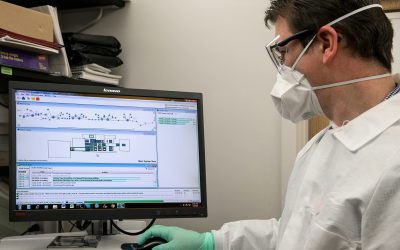Patient data collection, storage, and access have seen a tremendous transition in the previous ten years within the healthcare sector. The adoption of Electronic Health Records (EHRs), which have completely changed how healthcare professionals manage patient information, is one of the most important developments in this field.
However, as technology continues to evolve at a rapid pace, the future of EHRs and hospital IT is set to change in ways that we can only imagine.
Here are a few ways in which EHRs are likely to evolve over the next decade.
- Increased Integration of Artificial Intelligence (AI)
Predictive analytics and personalized treatment are only two examples of the numerous healthcare applications where artificial intelligence (AI) is already in use. Yet in the following ten years, we may anticipate seeing AI integrated into EHR systems more and more. As a result, medical professionals will be able to use AI algorithms to find trends in patient data and offer more individualized treatment strategies.
- Adoption of Blockchain Technology
Blockchain technology, which is best known for its use in cryptocurrencies, is also being explored as a potential solution to the challenges of EHRs. Blockchain technology can help ensure that patient data is secure and tamper-proof, and can enable patients to have greater control over their own health data.
- More Patient-Centered Care
A change toward more patient-centered care is one of the significant trends that we may anticipate in the upcoming ten years. In order to provide patients more control over their own healthcare, EHR systems will be created with a greater emphasis on their requirements and preferences.
- Greater Interoperability
Interoperability has been a major challenge in healthcare, as many EHR systems are unable to communicate with each other. However, in the next ten years, we can expect to see greater interoperability between EHR systems, which will enable healthcare providers to access patient data from different sources and provide more comprehensive care.
- More Mobile Solutions
As mobile technology continues to advance, we can expect to see more EHR systems being developed for use on mobile devices. This will enable healthcare providers to access patient data from anywhere, at any time, and provide more personalized care.
In conclusion, the next ten years are set to bring significant changes to EHR systems and hospital IT. These changes will enable healthcare providers to provide more personalized care, improve patient outcomes, and enhance the overall patient experience. As healthcare providers and IT professionals work together to navigate these changes, we can look forward to a brighter future for healthcare.









